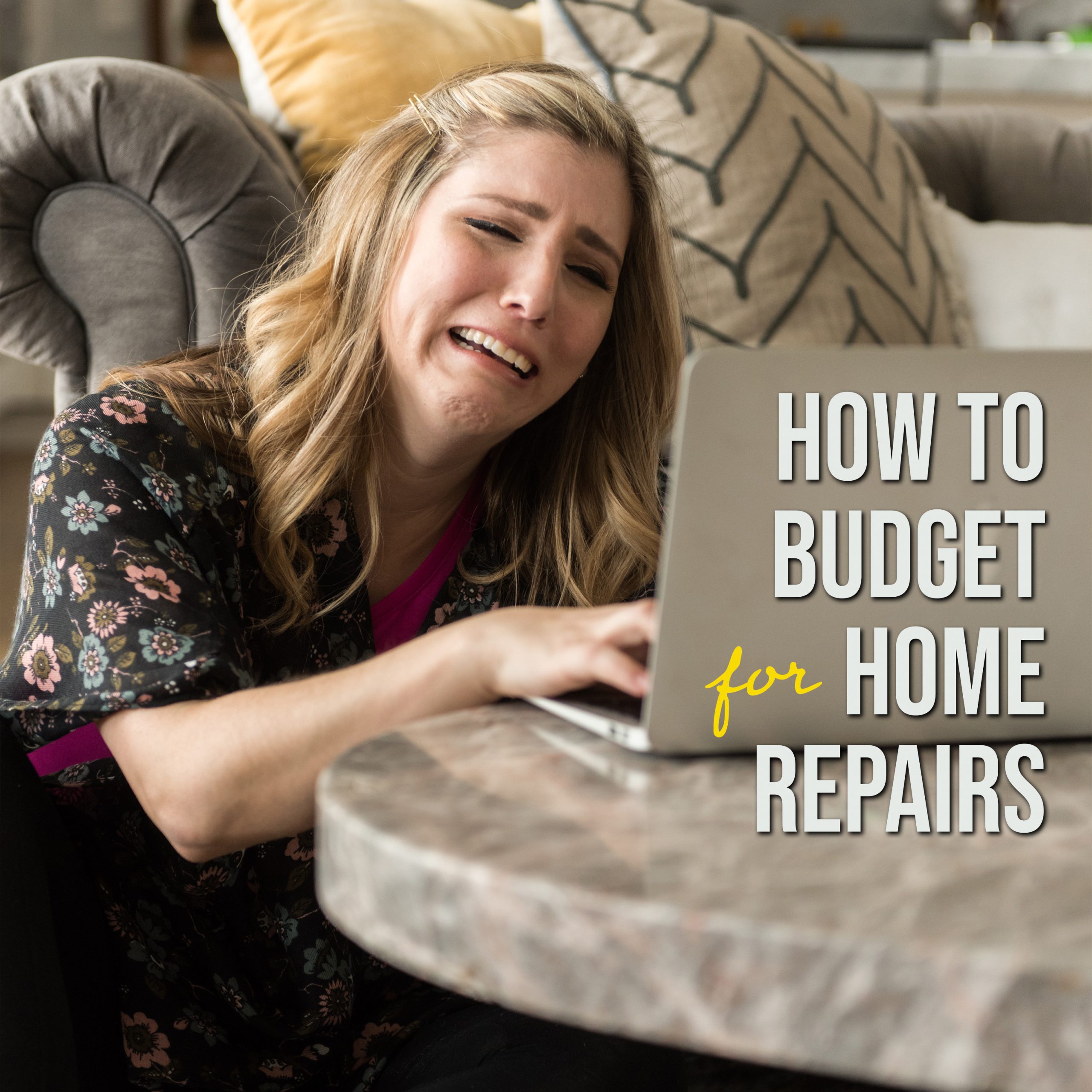Blog
Last year I did a video all about money mindsets that was really popular and got a lot of people thinking about why they think about money the way they do. It got me thinking that it might be helpful to explore this topic even further, and talk about the differences between a “Rich Mentality” and a “Wealthy Mentality”
There are several differences between a rich mentality and a wealthy mentality when it comes to the following topics:
1. INCOME
Many people look at earning $100,000.00 as a benchmark for wealth when it comes to income. Then they reach that benchmark, their lifestyle expenses increase, and then that 100k doesn’t seem like so much money. So they aim for the next benchmark… 300 thousand dollars. And guess what? Expenses increase, it doesn’t seem like enough, rinse, repeat. And this just goes on and on.
The above hamster wheel is what having a rich mentality looks like. It relies on earned income strategies, and you can only make as much money as you have time to earn.
A wealthy mentality looks for ways to earn passive income to reach that six-figure goal.
2. SAVINGS
The way a person with a rich mindset looks at savings is quite different than that of one with a wealthy mindset. If you are someone who has a rich mindset, you likely have a large sum of money saved in a bank. I personally have done this myself! I used to be obsessed with the idea of having AT LEAST 6-9 months of living expenses in the bank at all times.
The problem with this is that the money sitting in the bank is not working for you, and is actually losing value due to inflation (I recorded an entire video on this, which you can check out HERE)
Someone with a wealthy mindset will look at that money that would be sitting in the bank and invest it in something that will protect them against inflation, and also bring returns. I get it- the idea of not having your savings readily available in case of emergency is scary. Please understand that I’m not talking about emergency funds, or having some amount of cash handy. BUT, I am talking about investing any large sums you may have sitting in the bank into investments that can work for you!
3. ACCOUNT FOR EVERY DOLLAR
I know you’ve heard me preach this over and over, but even I am guilty of not really thinking about where every dollar is going. I do when it comes to large purchases, but when it comes to 20 bucks here and there on small inconsequential things I’ll do it without thinking. Guess what those small purchases add up to? You guessed it- Big ones!! The reason this falls into a rich mentality is because I’m fortunate enough to not NEED to worry about spending 20 bucks on lunch out. But if I was coming from a wealthy mindset, I would anyway because every dollar spent on something small is actually a dollar that could be spent on something larger and more meaningful.
4. BE CHALLENGED:
Gonna say this loud for the people in the back: GET IN A BIGGER ROOM ????. What I mean by this is: don’t be uncomfortable or feel like you don’t belong if you find yourself in a situation with people who have reached a level of wealth or security that you aspire to. It’s GOOD to surround yourself with people who are reaching the goals you also want to reach. It can be inspiring to hear the successes of others, and it can be helpful to learn from them!!
If ever you want to talk about this, or have more questions, I’m here to help!
February 10, 2020

It’s that magical time of year where little white slips appear in the mail and your inboxes… you guessed it, TAX TIME! So this week, in anticipation of people getting those pesky tax filings out of the way, I want to talk about things you need to know about your taxes so that you can buy a home!
So the good news is that if you’re paying taxes, you’re at least making money! I know that little sliver of sunshine might not make paying them any more fun, but we’re trying to look on the bright side here!
So tax “season” as it’s been called, can mean different things for different people. For some, it means there’s yet another bill coming, and you need to shell out more dough to the IRS. And for others, it means you may have paid too much over the course of the year, and you have a refund coming to you!
There are so many things you can use your refund for… (paying down debt is a great option) but have you considered using that tax refund as either part or all of a downpayment on a home?
The average tax refund these days is about $2,800.00.
In Phoenix Arizona, as of the time of this post, the minimum funds required to purchase a home with down-payment assistance is $2,000.00.
Coincidence? Maybe! But the point is, if you are someone who is frustrated with renting and would like to own your home rather than pay to live in someone else’s, your tax refund may be just what you need for a down payment.
Something interesting to note here: The average monthly rent payment in most American cities is actually HIGHER than the average monthly mortgage payment.
For example, in Phoenix, average rent is $1,500.00 per month. The average sale price for a home is around $250,000.00. If you were to choose an FHA mortgage on $250,000.00 at 4%, your mortgage payment is going to end up somewhere right around $1,500.00 per month. (Obviously this is not a rate quote, and actual numbers will depend on a variety of factors that you can learn about in our other money tip videos).
The lesson here is that for the same amount of money, you might be able to own your home versus renting it.
“But Lizy, why would I want to own a home when I can just rent it for the same price?” … I have one word for you: Appreciation. The value of the home you purchase will (most likely) increase with time, but your payments will remain the same. If you rent, you will never reap the benefit of that appreciation. Your landlord will, while you pay their mortgage for them.
Playing devil’s advocate for a second, you will have to be responsible for home repairs if you make the switch from renting to owning. But even that doesn’t need to be a huge burden! (Check out my video on how to budget for home repairs for more info on that topic!!)
The amount of income you declare on your taxes matters!!!
I’ve heard every reason there is for not wanting to actually list one’s income on their taxes, but when it comes to borrowing money to purchase a home, the only way to prove your income to the lender is by showing your tax returns.
There are a few exceptions to this, but in general, most lenders need verify your ability to repay based on your income as reported to the IRS. I get it- the less money you declare, the less taxes you pay. But there are more effective ways to minimize your tax liability with deductions that don’t prevent you from qualifying for a home loan.
I recommend talking to a reputable tax professional to learn what the best strategy for you is. Depending on your types of income and what you are able to deduct, they might give you options to help you qualify for a mortgage if you haven’t in the past!
Many people find the idea of taxes really intimidating. Especially if they have not filed before, or may have past tax issues. But I can promise you that simply talking to a tax professional and starting to address it will help set you on a path that will help you realize your financial goals. And keep in mind, having a payment plan to repay back taxes does not necessarily prevent you from qualifying for a home loan!
Bottom line, the choices you make regarding the tax return you file this year could affect your ability to purchase a home in the coming years. So my best advice is to be cautious, file on time, declare all of your income with the appropriate deductions, and talk to a tax professional so that you can get the most out of your income, and eventually, have the most buying power available to you!!
February 3, 2020

So I recently did a bit of research on what the most common difficulties most homeowners face, and I kept coming across the cost of home improvements and repairs.
In fact, I even discovered that 3 out of every 10 homeowners do not have any money set aside for home repairs- but I’m willing to go out on a limb here and say that almost 100% of home owners will someday have to make a repair. And a lot of people want to make improvements, remodel, redecorate, update, you name it!
I’ve been there too, and I thought it would be a good idea to talk about how to make sure those improvements (and inevitable repairs) don’t destroy your budget!
My Top Five Tips to Prevent Home Improvements & Repairs from Breaking the Budget
1. Have a plan
If you are in the process of purchasing a home, make sure you get a thorough home inspection. And if you have been in your home a long time, and genuinely don’t know where to start, or are concerned that you might be facing some serious issues, you can also order a home inspection! A home inspection simply gives the person requesting it a detailed report on the condition of the home. From windows, to walls, to roofing, plumbing, HVAC, electrical, etc., this report will give you a heads up on what repairs are imminent, and what may be coming down the road in the next couple of years.
Or, if you don’t want to go so far as hiring a home inspector, you can always meet with a handy man or a contractor and come to a similar result. The important thing here is gathering information about your home so you have an idea of what to expect. Knowing this will give you a baseline on how to set up a budget for future repairs.
And a word of caution to people ordering inspections as part of a home purchase: If you’re able to negotiate a lower sale price in exchange for the seller not having to make repairs on the home you’re buying, SAVE THAT MONEY. Those repairs that came up in your report will still need to be made, and the money you saved on the purchase should be set aside for when you need to make that repair.
2. Home Warranty
This can be a great way to save money on common repairs. With a home warranty, you an annual rate for warranty coverage on your home. Depending on the plan, this can include appliances and even some plumbing. For example, when I bought my first home, I had a leak and some water damage from a faulty disposal in the kitchen sink. But I had a home warranty in place! So I called, and simply paid a $25 service fee, rather than the $175 repair that I would have had to pay for. Now, I will say that you need to do your due diligence and make sure you understand what is covered and what is not. It needs to make sense for you, for the age of your appliances, etc. But this can be a big money (and time!) saver.
You can purchase a home warranty yourself, but this is also something you can ask for from the seller when negotiating the purchase of a home. Either way, paying a service fee vs racking up repeated repair costs is a great way to save money.
3. Act Fast on Repairs
Did you know that only 10% of people who see physical damage from a home repair actually act on it right away? This is craziness!! If you can see physical damage, that usually means the problem NEEDS to be fixed. If you act quickly, you prevent further damage. If you don’t act quickly, you run the risk of more damage occurring. More damage means more money out of your pocket.
For example, if you see a water leak and think, “oh, it’s just a drip” that drip can turn into a burst pipe, or even worse, something like black mold! Then you get into dealing with insurance… eeek!
At the very least, have someone come look and tell you the extent of whatever the damage may be, and what the chances are of it getting worse. It’s better to suffer a little bit in the short term and get something fix than be in deep water if you let it go too far!
4. Fix it Yourself
Are you handy? Great!! You’re already a step ahead. And even if you’re not, maybe head to google and see if you can learn how to make small repairs yourself. Often, things that seem really complicated are not too hard, and you can find instructions online for just about anything!
My advice: Look up how to do it yourself before you go shopping for a handyman.
5. Shop Around!
Do research when it comes to professionals, and get multiple quotes! And this is advice that I think applies to just about any large purchase! Especially if you are looking for a specific service. It’s great to educate yourself on the cost of goods and services, and then you can make informed decisions that work with your budget.
Also, don’t be afraid to ask for a better deal! I recorded an entire video about the benefits of asking- make sure to check that out here: https://youtu.be/cE3Ki_MD9xg
January 20, 2020

New year new you? Nah, new year BETTER you! How do we help make you better? By helping you budget better!!! Duh 🙂
First of all, it’s so important to keep a budget. If you’ve never done it before, don’t worry. There’s no reason you can’t start one now. There’s always a reason not to. Some of the most common objections I hear are, “but Lizy…
- I don’t have the time to budget
- I don’t want to be restricted if I need something
- I don’t like to feel controlled!
I hear you. But I’m here to tell you that a budget is not meant to restrict you in any way! It’s simply a tool to show you where your money is going. If you know where your money is going, you can make better choices… (see how I brought us right back to that whole “better you” idea 😉 )
1. SET FINANCIAL GOALS
Setting financial goals for the year helps provide a road map for where you want to be 12 months from now. These goals are totally up to you! Maybe it’s saving for retirement, a wedding, a vacation, a car… whatever you want it to be. When setting these goals, you need to ask yourself two questions:
– How do you want your money to work for you?
– Where are you going to put it?
I think a good rule of thumb for most people is the 70 / 20 / 10 rule. That means that 70% of your income goes to life expenses. 20% goes to debt reduction, and 10% goes to savings (I’ve talked about this idea a lot, you can read more here)
2. CALENDAR
One of the easiest and best tips I can give you is to sit down at the start of the year and assess your calendar. Think about things like vacations, birthdays, holidays, parties, etc. All these things cost money, and you can account for them as part of your lifestyle expenses if you know in advance when they are coming! One of the most common problems people run into when setting up a budget is that they include only their daily and monthly living expenses, but forget about things like birthdays and holidays. So when those things happen, debt happens. But looking at a calendar and planning out for the entire year can help you avoid this problem!
While looking at you calendar and deciding what sort of fun things to add for the year, ask yourself: What kind of life am I going to live? This will help you know how to budget! Plan out your year when it comes to entertainment and lifestyle.
NOTE- you can also do this if you know you have any big medical expenses coming up! If it’s planned on your calendar, it should be accounted for in your budget!
3. GATHER 12 MONTHS OF SPENDING HISTORY
I absolutely realize that this third point may be scary, but I PROMISE you it’s worth it. You need to collect the last 12 months of spending. Then, average what you made, and what you spent. and then break into the following categories:
- Survival
- Entertainment
- Wasted money (subscriptions, frivolous shopping)
Then, rank each category on a 1-10 scale. Anything under an eight (8) needs to be eliminated! Brutal, I know. But the problem with anything under an eight is that it actually ends up stressing you out more in the long run, which often triggers more frivolous spending, rinse, repeat. It’s truly a vicious cycle.
4. REVIEW AND RECONCILE
Once you’ve done all of the above, it’s time to evaluate your budget and try to reduce spending to a more manageable number. The goal is to pay off debt and put that money towards wealth building.
Something to keep in mind: A budget is an estimated limitation on spending. Not something to create and never look at again. You didn’t do all that hard work just to let it go unused!
I recommend sitting down and reviewing your budget twice a month. This way it’s easier to keep track of where you’re at, and you can see if you’ve overspent in any one particular area. For example, if I see that I’ve overspent for this month already, I adjust and take that money out of my entertainment budget for the next month. Be mindful and see if you’re really working towards your goals. Small adjustments help make the big picture much more manageable!
BONUS TIP!
An extra tip for those of you who have a fluctuating income (ie- you get bonuses, work on commission, are self employed)
TIP: budget by percentages, not set dollar amounts. This will help you both in the months that you’re doing really well, and the months that are leaner. So make sure to save the same percentage not the same dollar amount!
I have a budget guide for you! Just click the icon that says “FREE BUDGET GUIDE” on our lizyhoeffer.com homepage! lizyhoeffer.com
January 13, 2020



